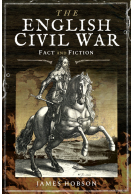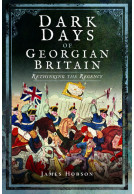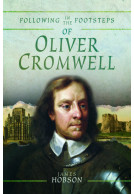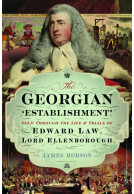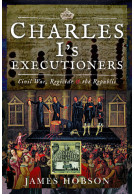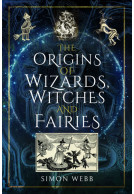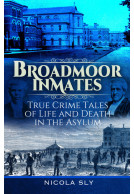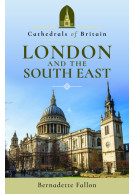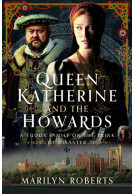Radical Victorians (Hardback)
The Women and Men who Dared to Think Differently
Imprint: Pen & Sword History
Pages: 232
Illustrations: 40 black and white illustrations
ISBN: 9781399008266
Published: 11th May 2022
(click here for international delivery rates)
Need a currency converter? Check XE.com for live rates
| Other formats available - Buy the Hardback and get the eBook for £1.99! | Price |
|---|---|
| Radical Victorians ePub (18.2 MB) Add to Basket | £6.99 |
There is more to the Victorian era than respectability, economic success and the grudging solution of the practical social problems they encountered. The politicians, generals and commercial classes have been well covered in popular history books, but there were also thinkers of radical and unsettling ideas who had a real influence at the time. Many were women, many from the middle and working classes, and almost all outside the power structure. They were by no means all fringe ideas either – in 1840, Queen Victoria herself attended a séance, for example.
The book is a biography focussed history of some of these challenging ideas and the men and women who promoted them. It looks at radical thinkers and movers, the people who stepped outside of the social norm and propelled the Victorians towards the modern day.
I really enjoyed this book. I am a nineteenth century scholar and loved learning these not-so-known individuals and their interesting stories.
NetGalley, Rosemond Cates
Rating: 5 out of 5 stars
NetGalley, Aisha Bari
A very quick and interesting read! I thoroughly enjoyed this book and loved reading.
I found the subjects extremely great and found that they were well researched and the author done a fantastic job.
The Victorians were, if nothing else, open-minded, ready to accept explanations of a supernatural kind for things they couldn't explain, for example. James Hobson's excellent book reminds us of how receptive they were to alternative theories and ideas.
Books Monthly
Rating: 5 out of 5 stars
NetGalley, Anna Maria Giacomasso
A very interesting and informative book. Some of this names were relevant because of the modernity of their ideas or their anrticonformism.
They were all interesting and none is well known name.
I discovered interesting people and enjoyed this well written book.
Highly recommended.
Rating: 5 out of 5 stars
NetGalley, Anita Wallas
Radical Victorians is the story of an eclectic mix of individuals who basically dared to think differently, or outside the box. The Victorian era was one of huge and unprecedented change. The industrial revolution affected the lives of rural farm workers and made numerous unlikely individuals very wealthy. Science was prevalent in day to day life in a way that we mostly take for granted and it’s in this context that James Hobson has selected a number of people whose views were different to those around them.
I wasn’t aware of the majority of the people and for that reason alone, I’ve found this a really fascinating slice of social history. I’ve dipped in and out of the stories over a couple of weeks as there’s much to take in and there’s real incentive to look further into the background of some. I like the narrative style which makes this book a pleasure to read rather than a dull slog through facts and history. The subjects covered are wide ranging, from eugenics to prostitution, vegetarianism to spiritualism. Rather than focus on the famous, this selection brings other influential thinkers to life and gives them a rightly deserved place in history. We may not agree with their views but it’s the way society is shaped and I’ve thoroughly enjoyed this biographical review.
Almost exactly 18 months ago I reviewed Charles I’s Executioners by James Hobson, in which the author wrote about some the lesser-known characters of the English Civil Wars, providing a refreshing perspective on that troubled time. In his latest book, Radical Victorians: the Women and Men Who Dared to Think Differently, the author takes a similar approach in tackling the free thinkers of the Victorian era, picking characters whose views were so out of step with their contemporaries that it was only in the 20th century that they were acted upon.
Peter Calver
That doesn’t mean that modern readers will find them sympathetic characters, nor that we will agree with their arguments – in some cases what was outrageous then is accepted now, but in other cases it’s considered even more outrageous than in Victorian times. A good example of the latter is Francis Galton, now mostly remembered for eugenics, and almost as reviled as Hitler (though the author argues convincingly that Galton has been unfairly condemned). Less controversial in our day are those who stood up for women’s rights – but whilst one of them has a surname that you’ll know well, he’s not one of the Pankhursts that you’d normally associate with that movement (he was their husband and father, the one who gave them their distinctive surname).
What I gained from this book was a much broader view of Victorian society than usual – and not just the middle classes, though most of the key characters did come from relatively privileged backgrounds. In the course of the journey I discovered answers to questions I’d pondered over many years – and to questions I’d never previously thought to ask. In terms of the insight it gave me into the period it bears comparison with the 6 week course (one evening a week) that my wife and I attended at the Victoria & Albert Museum in the mid-1990s – even though the subject matter was quite different.
I came to this book having recently watched the 26-part adaptation of Trollope’s Palliser novels, which are largely about politics in the mid-Victorian era – so it followed on quite well. Whilst it’s not written specifically for family historians you’ll encounter many familiar topics within its pages. Just don’t expect to sympathise with all of these radicals – you won’t!
Lost Cousins
A lovely little book that looks at different individuals of the Victorian age, but these people are radical thinkers and practitioners. These aren’t necessarily well-known names but they are important in their own little areas of expertise or dominance. The book is split into 15 chapters with each chapter following individual men and women. The chapters look at particular subjects and the radical thinkers in that subject such as Temperance, Spiritualism, Birth Control and radical journalism. Whilst had heard about some of these people, especially quite a few of the women these characters were from more the second level of prominence. The book was an interesting and easy read, and in fact it was nice to hear about these lesser characters or people. This book is certainly a good book and ideal for anyone interested in this period of time.
The History Fella
Read the full review here
Victorian society is usually thought of as traditional, conservative, and staid. And for most people who lived during the reign of Queen Victoria, that is true. However, James Hobson presents several Victorians who not only broke societal rules to make a point, they influenced future generations in ways they might not have dreamed of. Sadly, the names of most of these early influencers have been lost to history but this book gives them a last hoorah.
NetGalley, Ann Dudzinski
I originally picked this up as research for my own writing, since characters who behave all the time are boring. The author has a dry wit and the book is very readable (no textbook-style slog here), and I found myself immersed in history - which is one of my favorite places to be.
The author was very clear in his selection process: he chose radical thinkers “whose ideas were not much acted on (during the Victorian era).” In fact, most of those highlighted did not live long enough to see society embrace their ideas. But whether they knew it or not, they all changed the future.
The book explores both men and women. Most were wealthy, a few were not. Some were better tolerated than others. A few hobnobbed with high society and other radical thinkers like Darwin and Karl Marx. A few went broke pursuing their dream and one died on the Titanic. Some were radical atheists, others were conservative Christians. They couldn’t be pigeon holed.
The Victorians in this work embraced ideals that included vegetarianism, the end to vivisection, temperance as a lifestyle, freedom of the press, atheism, radical Christianity, acceptance of birth control and cremation, spiritualism, and women's equality under the law.
If you’re interested in Victorian society or just historical movers and shakers, I highly recommend this book. It’s a worthy addition to any library.
Radical Victorians was a surprisingly good read about lesser-known movers and shakers of Victorian Britain. Each chapter covers a different area of "radical" thought where the highlighted individual played a big role for reasons that are often forgotten about today. The one name I knew from the people featured was Keir Hardie for his involvement in the early British Labour Party. This meant that the book provided a lot of interesting new information, which is always a plus for me. Another interesting point was their definition of radical including many topics that would be seen by many as being far from progressive by today's standards.
NetGalley, Stuart Harrison
Rating: 5 out of 5 stars
NetGalley, Karen Hammond
This was a fascinating book about radical Victorians and how they influenced how we live today. I was thrilled to see how many women were mentioned and included in this book. Really interesting read.
Radical Victorians by James Hobson is a fascinating glimpse into the nonconforming side of Victorian culture.
NetGalley, Jack Messer
While these are essentially biographical sketches I like that each chapter is titled with the issue for which that person is most associated. Even with the person's name as a subtitle I think it allows Hobson to be more inclusive of other individuals in discussing the topic. As one would expect, there is also a lot of crossover since many of these people cared passionately about other related topics. I guess what I am saying is that each chapter is a nice mix of biography and discussion about the movements more broadly.
As he points out, many of these people were far from perfect. They often held views that are certainly offensive to the 21st century mind and many were even questionably ethical by their own contemporary's minds. That doesn't change the impact they had in the areas discussed and, while making them less appealing, it also highlights the difficulty in expecting anyone to be perfectly aligned with our own views. We could learn from that. It doesn't mean we don't hold our current activists accountable for offensive views but it does suggest that we work with people on some issues while working against them on others. This will lead to far more progress than strict polarization where someone who doesn't align perfectly is discarded and their efforts in mutual areas ignored. We are all students and we are all teachers, we all seek change and we all should be open to change ourselves.
Rating: 5 out of 5 stars
NetGalley, Karen Bull
Brilliant book honouring the victorians who dared to stand out and think for themselves.
Great look in to history and brought to life well written and totally worth reading.
Rating: 5 out of 5 stars
NetGalley, Chris Hallam
James Hobson details the lives of 19 trailblazing Victorians in this fascinating and very readable book.
None of the 19, except perhaps Labour Party founder, James Keir Hardie are well-known today. Hobson's interest is not in those who like Charles Darwin, saw their radical theories widely absorbed into mainstream society. during their lifetimes. The book is more interested in the outliers: the often lonely figures who stuck to their guns in the face of almost universal indifference, hostility and sometimes hatred.
None of the 19 figures featured saw their ideas lived to see their ideas become universally accepted.. Some of their outlandish notions, such as gender equality, freedom of the press and the notion of cremating the dead, have become widely accepted since. Others, such as socialism, vegetarianism and republicanism remain minority opinions, but are at least tolerated today. Others, such as spiritualism and eugenics have largely fallen out of favour.
They are a mixed bunch. For one thing, the vegetarian, Anna Kingsford,, socialist Henry Hyndman and scientist, Francis Galton were all undeniably very racist by modern standards. Although Hobson keeps an open mind, it is difficult to read the chapter about spiritualist, Florence Cook, without concluding she was some sort of fraud. Many of these figures were eccentric. Some were deeply flawed. All were very unusual.
But some undeniably great things and did much to improve the lives of large numbers of people. The 19th century temperance movement has developed a reputation for hypocrisy and cant. In the chapter on Ann Jane Carlile, Hobson reminds us that this wasn't always the case and was, at any rate, tackling an extremely serious alcohol problem which was destroying thousands of lives. Josephine Butler, likewise, did invaluable work in combatting the sexual double standard enforced by the odious Contagious Diseases Act. Even Francis Galton, today notorious as 'the father of eugenics' was justly celebrated during his lifetime for his very real scientific achievements. His ultimately wrongheaded ideas about selective breeding were shared by many on both the left and right of the political spectrum at the time. Long after Galton's death they would become inextricably linked to the horrors of Nazism.
In short, this book presents a fascinating portrait of a society tentatively taking the small but essential stepping stones towards the world we know today.
Rating: 5 out of 5 stars
NetGalley, Aria Harlow
This was such an interesting read, obviously everybody knows about the suffragettes during the Victorian era but this was a refreshing read because it covered more than that. I had no idea that there were men who were thinking progressively as well it was fascinating. There were people that I hadn't heard about before reading this that I found inspiring. A really good read.
About James Hobson
James Hobson has taught and written about History as teacher for twenty-five years. His first book was The Dark Days of Georgian Britain, a history of the Regency period. His other Pen and Sword books are about the English Civil war. His new book extends his interest in radicalism and protest into the Victorian era.
The Nonconformist Revolution Religious dissent, innovation and rebellion (Paperback)
The Nonconformist Revolution explores the evolution of dissenting thought and how Nonconformity shaped the transformation of England from a rural to an urban, industrialised society. The foundations for the Industrial Revolution were in place from the late Middle Ages when the early development of manufacturing processes and changes in the structure of rural communities began to provide opportunities for economic and social advancement. Successive waves of Huguenot migrants and the influence of Northern European religious ideology also played an important role in this process. The Civil Wars would…
By Amanda J ThomasClick here to buy both titles for £41.99









